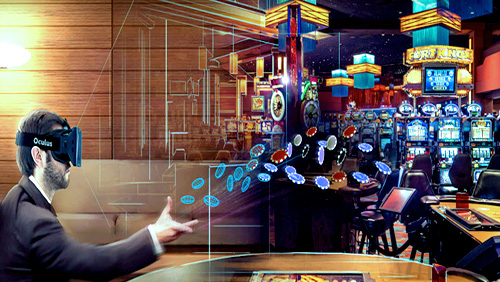This is a guest contribution by Doug Holmes. If you would like to submit a contribution please contact Bill Beatty for submission details. Thank you.
The question that needs to be answered is “Could the rush experienced by gambling be increased by virtual reality”. It is clear that there are few industries immune to the impact of VR, and the casino industry is definitely no exception. Before discussing the impact of virtual reality, one needs to understand the technology that provides users with a feeling of actually being part of an inexistent environment. 2016 is the year in which virtual reality is expected to go mainstream as developers have managed to find the perfect formula. VR also appears to be taking off due to mass production of inexpensive hardware such as PlayStation VR, HTC Vive, and Oculus Rift.
Tractica, a company, specializing in comprehensive market analysis, reported that 2016 would be the make or break year for VR and that the combined revenue for VR accessories, HMDs and VR content would increase by 142% after reaching $108.8 million in 2014 and is expected to grow to $21.8 billion by 2020.
The Clinical Psychology Forum described technology addiction in 1995 (in) with a statement that there was little doubt that activity that involved a person/machine that interaction would not stay and through the introduction of virtual reality the number of potential technological addicts would increase. At the time there was little experiential evidence that technological addictions exist as a clinical entity, although extrapolations from research into video slot and fruit machine addiction suggested that they do exist.
